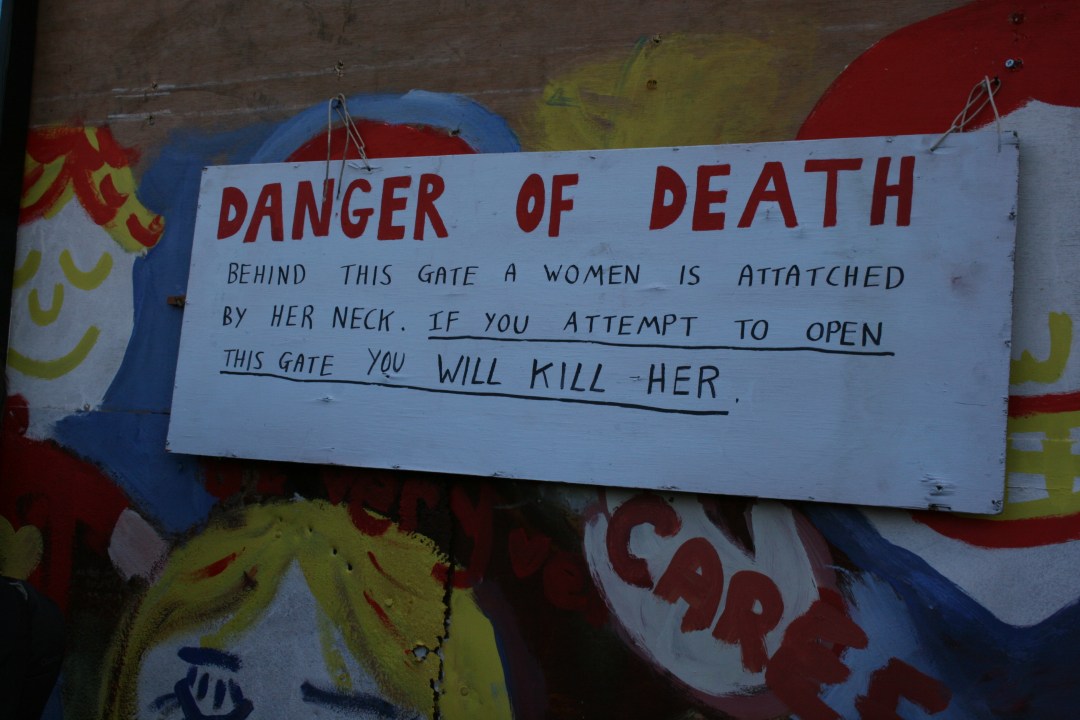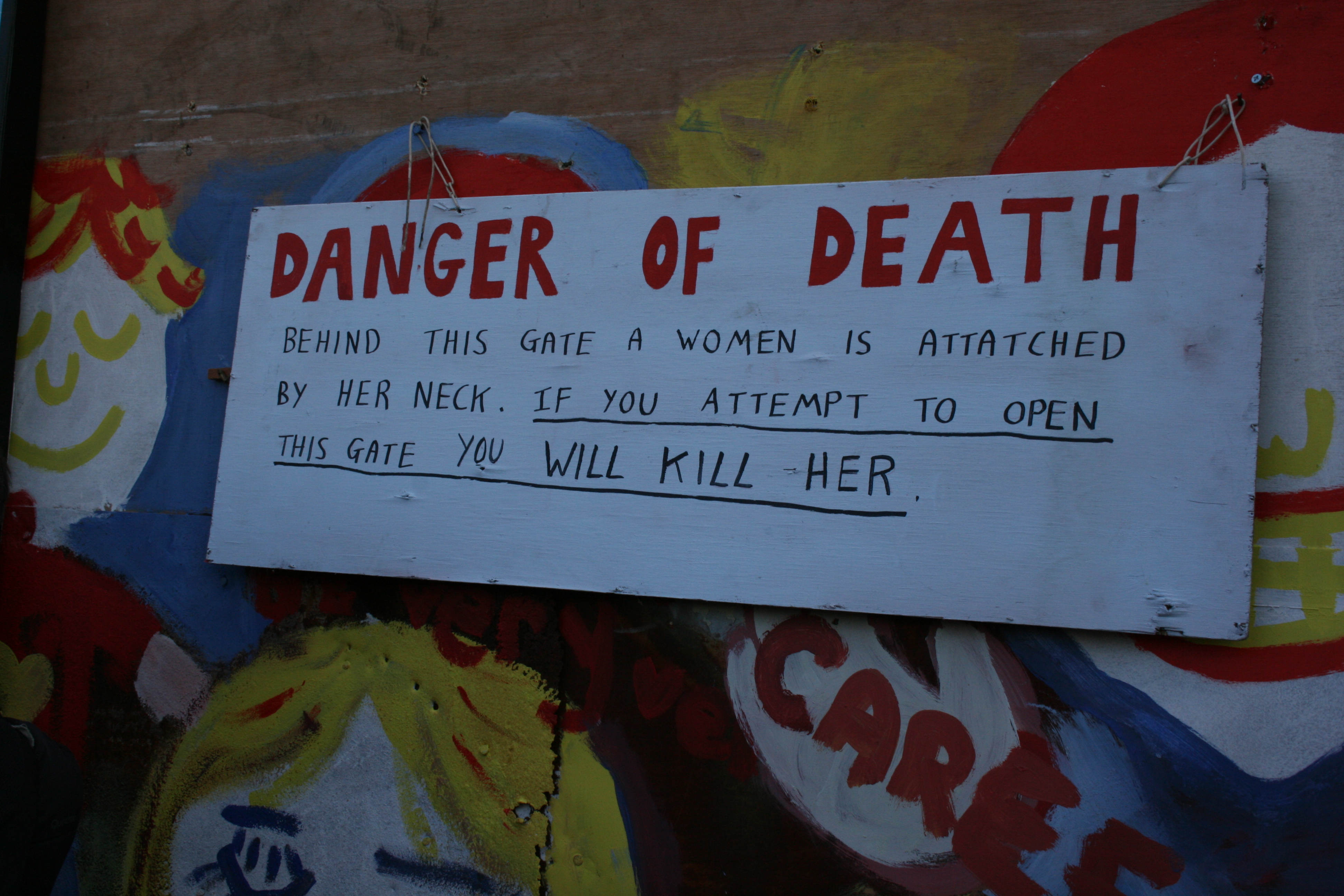
This is the second of our occasional ‘another voice’ series. Siobhan Courtney reports again from Dale Farm.
The outcome was not what anyone expected: the bailiffs are not getting into Dale Farm. The atmosphere here now is very different to
that of the weekend, when I was able to see what life was like inside Dale Farm. The
travellers, cheering with joy and hugging each other have just won an injunction preventing Basildon Council from clearing the site pending a further hearing on Friday. Blockades, scaffolding and
walls erected by the travellers and protestors stand defiant. Behind this structure, I’m standing in front of two protestors who have concreted themselves to a barrel and a notice on the gate
says ‘Danger of Death Behind This Gate A Women Is Attached By Her Neck. If You Attempt To Open This Gate You Will Kill Her.’
The eviction process has already cost £18 million, an expensive failure of planning policy as well as a failure of community. Around 400 travellers are living on roughly 50 plots of protected green belt. They own the land, but developed it without planning permission, resulting in a ten year battle. The latest statistics from the Department of Communities and Local Government show in England there are 18,383 caravans, with 3109 on unauthorised developments and encampments. This equates to one in five caravans on unauthorised sites, a reflection of the shortage of authorised sites and changing policy. The DCLG even admit that from 1994, travellers were encouraged to buy their own land and seek planning permission. So, that’s what the travellers did, but with 90 percent of planning applications initially refused they were soon placed in an impossible position. It’s ironic that the DCLG concede that, even though the travellers were encouraged to buy their own land, this “proved unworkable as many Local Authorities have failed to identify appropriate sites or to grant planning permission.” So, travellers were faced with no choice but to live there illegally.
The worry is that the planning situation is become more not less complicated. The new localism bill has shifted power from central government back into the hands of individuals, communities and councils and the bill has been followed by another new planning policy for travellers’ sites that is currently in consultation.
The experience of Dale Farm seems representative of a wider reality: no one wants travellers in ‘their back gardens’. People may have sympathy for them and support their nomadic way of life, but if travellers turned up in your village or town would you integrate and interact with them like you would with a neighbour that had moved next door? You probably wouldn’t and this is the crux of the problem.

Nora Sheridan, 76 tells me she has nothing to live for if she leaves here. “Basildon Council have treated us in the same way Hitler treated the Jews”. I ask her about the allegations that some of the travellers at Dale Farm own properties in Rathkeale, Ireland. “No, no we don’t. We’ve all got the same surnames, McCarthy, Sheridan, Flynn – they’re popular Irish surnames. If we owned properties in Ireland why would we want to live in a field in Essex?”
Tony Ball, Leader of Basildon Council, is in the adjoining field surrounded by bailiffs holding briefing meetings. He wearily explains this day has been a long time coming: “They will be gone. We’ve fought a ten year battle with the travellers and today is the beginning of the end”.
It has certainly been a long battle. I can’t help but think that the situation has been unnecessarily ‘drawn out’ for as long as possible, but Councillor Ball insists this isn’t the case. I put to him that the travellers have settled here for over a decade now and sent their children to the local schools; could the current situation not have been avoided when the travellers’ planning permission to build on the land was initially rejected? He pauses and replies, “Well, after the planning permission was rejected it went all the way to John Prescott, the Deputy Prime Minister at the time. He gave the travellers a two year period to move off. In that time the site grew and grew and grew in size but there was nothing the council could do…That was 2005 and we went through the whole process again and it finished up even an application to the House of Lords”.
Mr Prescott over to you…








Comments